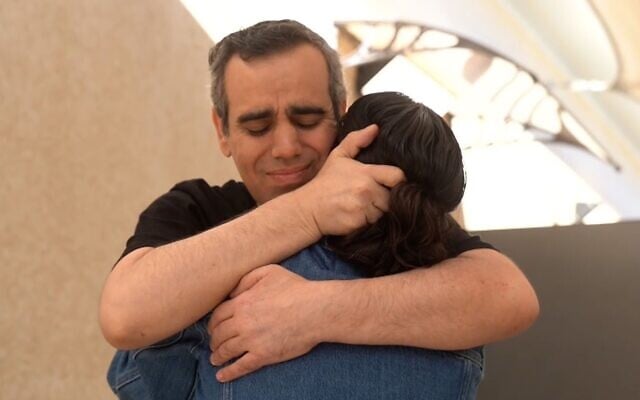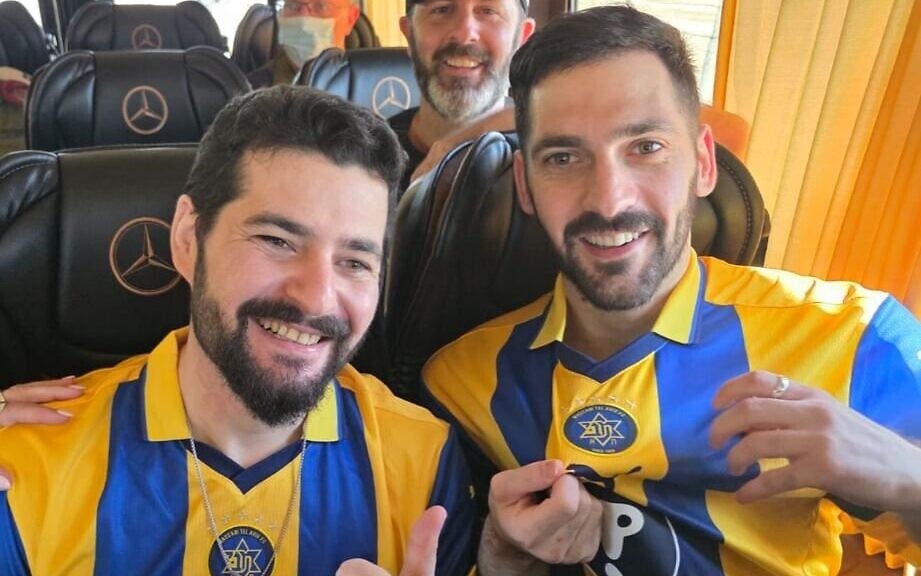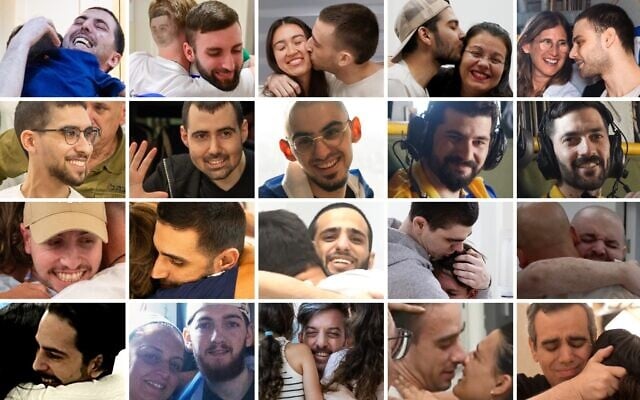Tears of Joy, Tears of Love: The Hostages Return Home
- Ronnie Dunetz
- Oct 19, 2025
- 6 min read
October 13, 2025 - It was an extraordinary and historic day, overflowing with emotion. Over the past two years since October 7th, there have been many such moments — but this time, the tears were different. The tears of overwhelming joy took the lead, though they were still mixed with tears of loss.
I went to Hostage Square in Tel Aviv, for what I hoped would be the last time forever - all remaining living Israeli hostages have been freed.
For two years, we watched the families suffer — and in a deep, vicarious way, we suffered along with them. Our compassion for them mixed with anger, fear, sadness, longing, and hope. It was a profound national moment of pride, but for me it was no less a deeply Jewish and human moment of pride — a moment of hope that saved lives.
I Am Not Forgetting
I cannot forget the trauma, the horror, the pain, and the agony of all that has transpired since October 7, 2023. Can we ever forget the brutal evil and monstrosity of that sorrowful day, when more Jews were murdered than in any single day since the Holocaust?
Can we truly face the tens of thousands of Palestinian civilians killed after Israel began its campaign to eradicate Hamas — images seen around the world but rarely inside Israel? How can we forget the starvation, the destruction of Gaza, turning hundreds of thousands of Gazans into refugees without homes? And how can we forget that about 150,000 Israelis were forced to flee their homes along the Gazan and Lebanese borders, many still unable to return?
Can we forget the inhumanity of Hamas turning its own people - Palestinian civilians — into human shields in hospitals, schools, mosques, and homes? The pain of seeing the world fill with anti-Israel hatred, often laced with deadly antisemitism? The horror of 251 Israeli hostages — babies to the elderly — held in Hamas tunnels for two years, enduring torture, abuse, and starvation? All this I cannot forget.
I cannot forget that, for much of these two years, I felt abandoned by my own government - unable to trust its words or intentions, its politically motivated decisions that prolonged the war and the hostages’ suffering. There were times I wondered whether hope itself could survive. This loss of trust is not easy to forget.
Yet I will also never forget the unbelievable surge of volunteerism that swept the country from top to bottom after the Hamas attacks. Everywhere people stood in line to help — donating money, clothing, food, and time; filling in for those called to defend. Regardless of age, profession, location, or political and religious differences, Israelis came alive to serve one another. That sense of unity brought tears to my eyes then - as it does now while writing these words.
We have heard stories of heroism from that dreadful day, but today we know that such selfless courage appeared again and again throughout the war - far from the cameras, in the quiet acts of ordinary people. The Israeli military achieved great victories against Hezbollah, Iran, and Hamas - achievements not to be underestimated. Yet as the war dragged on, I grew increasingly uneasy. The death of too many Gazan civilians, especially children, could not be ignored, even if their faces were absent from our screens. Why was there so little open discussion about empathy?
Yes, war breeds tragedy — especially in densely populated areas. But when information is withheld, one wonders what else is being hidden, and why. This, too, does not leave me.
And then there was the flood of disinformation — the manipulation of social media, the fog of “fake news” that made it nearly impossible to discern truth. I was shaken by the wave of anti-Israel hatred online, often anonymous and cruel. I could hardly remember another time in my life when I felt I had to hide my identity while traveling. That sense of insecurity was deeply troubling.
Proud to Be an Israeli
This was a proud moment to be an Israeli - a time when the spirit and character of our people shone brightly and courageously.
The Israeli military has always been a “people’s army.” Our soldiers are our children, fathers, and brothers - and increasingly, our mothers, daughters, and sisters. We demand much of our military, though war by nature deals in death and destruction. The ethos of the Israeli army - “morality in defense” - may be a paradox, but it remains a guiding code we refuse to abandon. It may be an ideal more than a strategy, yet most Israelis, myself included, would shudder to see it forsaken.
At the heart of the Israeli ethos has always been this: “We do not abandon the wounded or captured in the field.” This principle has been drilled into generations of soldiers; it runs deep in our national DNA. Thus, the long, painful period in which Israel could not — or would not — make the compromises necessary to bring the hostages home felt like a betrayal of that core identity. For nearly two years, I asked myself: How can they still be there?
There were times when it felt as though our leaders had forgotten who we are. And yet, finally — much later than it should have been — we brought them home.
I have lived and traveled widely, especially as a young backpacker in Asia, and I remember clearly: whenever trouble arose — illness, theft, an accident — it was the Israeli travelers who showed up to help. They organized, comforted, took charge. Was it military training? Education? The national spirit at work? Perhaps all of the above. I saw it then, and I saw it again now.
When the last hostages appeared on the television screen, I too began to cry — along with so many others. After two years of distrust in those leading the war, the real spirit of the people had prevailed. We were walking our talk once again. I felt, deeply and gratefully, proud to be Israeli.
Proud as a Jew
The ethos that shaped this moment did not arise from nowhere. It is deeply rooted in the Jewish tradition, carried through millennia of struggle and faith.
Mishnah Sanhedrin 4:5:“Whoever destroys a single life, it is as though he destroyed an entire world; and whoever saves a single life, it is as though he saved an entire world.”
Talmud, Shevuot 39a:“All Israel are responsible for one another.”
Talmud, Bava Batra 8b:“There is no greater mitzvah (commandment) than the redemption of captives.”
Lofty words, yes — but unlike many cultures that leave ideals on parchment, Jewish communities throughout history were forced to live these words in times of persecution and danger. They became moral imperatives, not abstractions.
So when the hostages came home, what I felt was not only national pride, but a deep connection to an ancient moral code — one that has shaped Jewish life for over 3,000 years. Reality has not always matched our ideals, but the ideals themselves endure. The Jewish ethos gave birth to the Israeli ethos, and continues to sustain it wherever Jews live.That day, I was proud to be a Jew.
Proud as a Human Being
There is one final layer of pride — broader, universal, and perhaps the most essential of all. The tireless protests, the prayers, the unrelenting work of thousands across the world to free the hostages — all of it was, at its heart, an act of love. The tears that filled my eyes were not only about Israel or Judaism, but about the force within us that reaches out in compassion, that insists on life and justice, that yearns to turn wrong into right.
Yes, life is paradoxical. Compassion often flows more easily toward some than others; empathy has its limits. But when you witness genuine love, you cannot deny it. So many of us shared the pain of those families and longed for their freedom — for the children, parents, brothers, sisters, and grandparents who suffered beyond words. So many never gave up, returning week after week to Hostage Square.
I am awed by their perseverance, by their refusal to let despair win — and most of all, by the hostages themselves, who chose life in the face of unspeakable brutality.This was a day to be proud as a human being.A day to be thankful that we human beings still have the capacity — and the conscience — to choose good over evil, love over hate, and life over death.



















Comments